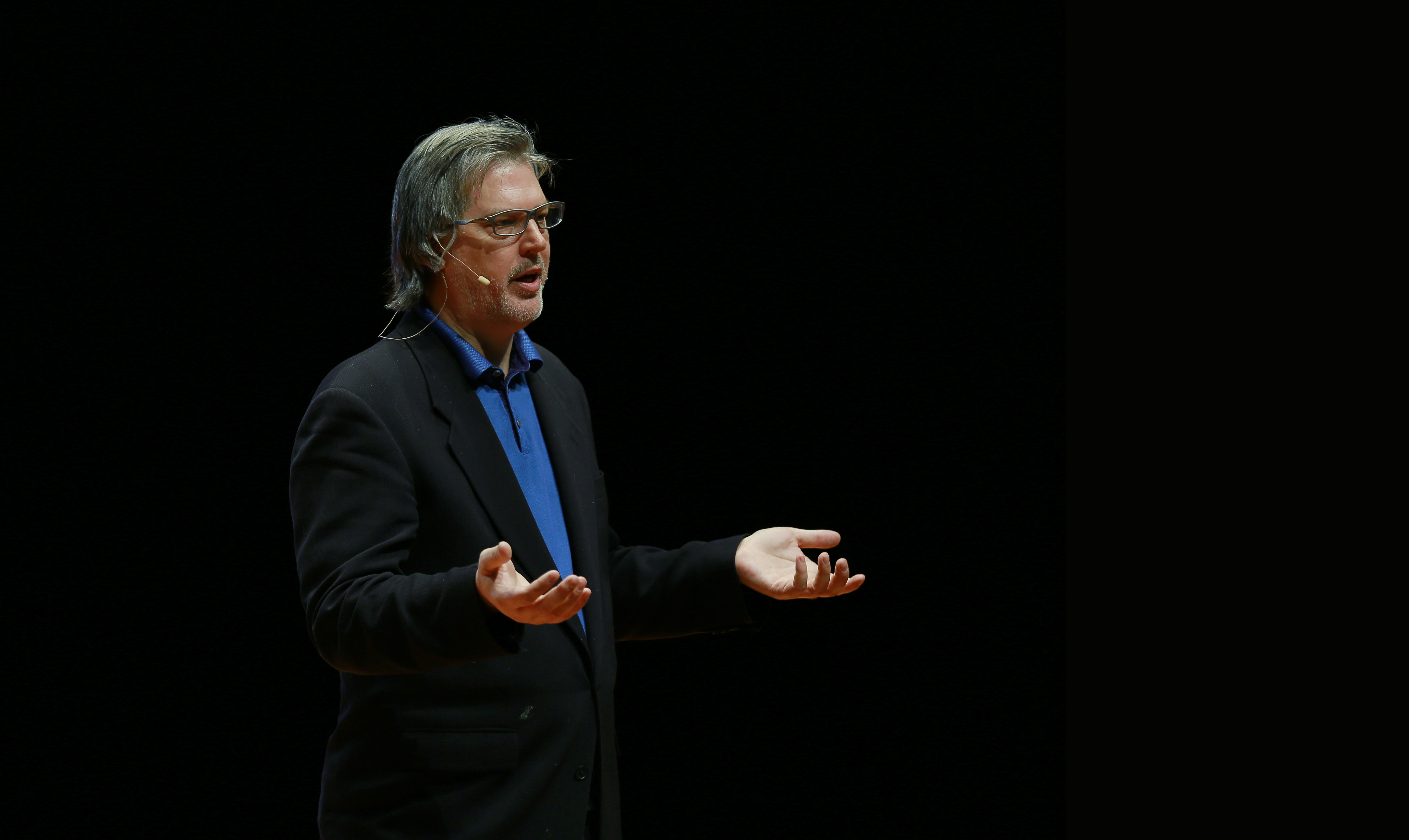What drives us and what powers us

Nate Hagens, adjunct associate professor, Department of Ecology, Evolution and Behavior, University of Minnesota, discussed our energy-driven future at WEP 2018. Photo by Asharaf Kannearil.
By David Murphy, KAUST News
As a society, our future access to energy will define what we can and cannot do as individuals, nations and as a global human culture. Every aspect of our lives is underpinned by energy and how it is generated and consumed, and we as a race are extremely energy-hungry.
On January 23, Nate Hagens, adjunct associate professor in the Department of Ecology, Evolution and Behavior at the University of Minnesota (UNM) Twin Cities, spoke to the KAUST community during the 2017 Winter Enrichment Program (WEP) about what drives us and what powers us. Hagens, who is an intellectual who writes and speaks on the synthesis of human behavior, energy, economics, the environment and issues related to human futures, gave an illuminating keynote address that summarized his UMN class called "Reality 101 - A Survey of the Human Predicament."
"My class is neuroscience, evolutionary psychology, energy, resources, minerals, the economy, money, climate change, mass extinction—all into one—and I'm going to give an hour summary of that class and its implications today," he noted.
His keynote entitled "Energy, Money and Technology - From the Lens of the Superorganism," focused on the broad themes of energy and economy basics, money and technology and why humans in the global market economy are functioning like a "superorganism." Hagens described that—when viewed solely from an ecological lens—society can make better individual choices. These choices can influence governments, policymakers and world leaders—those who have the power to impact societies.
"It's my opinion that you have to see the system as a whole to understand what is going on. Energy underpins natural systems and human economies. Human preferences are correlated with more energy needs. Energy matters vastly more than other economic inputs," Hagen emphasized.
As with our all-consuming need for energy, Hagens also noted that a sizeable portion of the global population views the world around them through a monetary lens.
"We have an economy based on stocks, but we think it's based on flows. Money has no biophysical backing; it is just a marker for real capital. Energy is our real capital, but it's running out," he noted.
(From left to right): Omar Knio, chair of the Winter Enrichment Program (WEP) 2018, WEP speaker Nate Hagens and KAUST Professor Tadeusz W. Patzek stand together after Hagens' keynote lecture. Photo by Asharaf Kannearil.
"Physically, global human society functions as an energy dissipating being. We humans—and society in general—are an energy-hungry super organism," he said.
"We ignore forecasts and warnings because we are so focused on the present. As a global culture, humans are no longer managing surplus. Global market-based human society is functioning like a dissipative structure and will continue to until it cannot. We need to, as best we can, use intelligent foresight and integrate/plan for lower consumption in the future," he added.
Regardless of our tendencies to waste energy, finances and ignore global warming forecasts, Hagens believes that all is not lost for human society in reaching an achievable sustainable future. Although we seem determined on making short-term environmentally unfriendly decisions without considering lasting implications, Hagens believes that, as a race, we are not as "evil" as we are sometimes portrayed.
"More energy does not make us happy—we are living through the carbon pulse. We only need a fraction of all this material stuff to be happy and healthy. As humans, we are not evil. We a simply executing the algorithm that our ancestors gave us. We are each part of an energy-hungry global amoeba, and we are not," Hagens noted.
"I don't know what the future will be. I have an idea of what it won't be. The future is a possibility distribution," he added.
Hagens concluded by reminded attendees to be more mindful of their relative wealth versus their actual wealth. He parted with some advice for the KAUST students in the audience: "Make your school/university needed and relevant. At KAUST, you are learning science and technology that is applicable to society. Be bold and take risks. A highly-educated, disciplined mind is a terrible thing to waste."
Related stories:
- A career with purpose
- Turning failure into success
- The day the Earth smiled
- Hackers and the Internet of Things
-
Art as a window into sight

